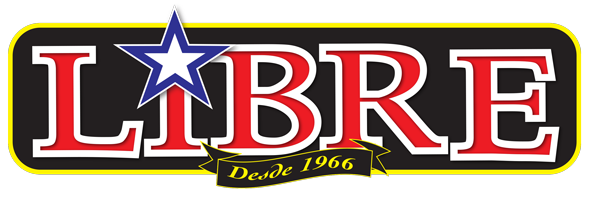AI in Sales: Transform your 2024 Strategy
AI’s biggest benefit is its ability to quickly analyze vast amounts of sales data to identify patterns, trends, and areas of improvement. They’re also extremely prone to error—especially when conducted by tired sales reps at the end of a long day. Certain AI tools can automate the data entry process, improving data accuracy. Company decision-making will become much easier for your leadership team when they can trust the numbers. AI can be used in sales to automate and optimize various sales activities, such as lead scoring, customer segmentation, personalized messaging, and sales forecasting.
In the ever-evolving landscape of sales technology, the infusion of AI is reshaping the way businesses operate. Those leading the charge in this transformation stand to gain substantial advantages, from enhanced competitiveness to finely tuned operational efficiencies. As AI progresses from being a theoretical concept to a practical tool in the realm of sales, companies must engage in thoughtful reflection and preparation. It provides real-time support to sales representatives, especially within CRM systems, enabling them to navigate their sales funnel pipeline, make more informed decisions, and streamline their overall approach. To take a pulse on the current use of AI by sales organizations, RAIN Group surveyed 250+ sales leaders, managers, sellers, and professionals across diverse industries globally. While automation can enhance efficiency, it’s essential to maintain human touchpoints in the sales process.
They can, for example, evaluate the possibility of a prospect becoming a client and assist in sales forecasting. Sales managers must examine each of their salespeople’s income pipelines every month to nurture opportunities that may stagnate or fall through. Thanks to AI, sales managers can now utilize dashboards to assess which salespeople will probably meet their quotas and which remaining deals will be closed. It’s never easy for businesses to select how much a discount to give a customer. You lose money if you leave money on the table, as vital as winning the deal is. Artificial intelligence in sales departments can help you predict the ideal discount rate by looking at the same elements of a previous deal closed.
Sales reps spend a lot of time adding contact information to CRM systems — especially those in large enterprises with complex sales processes. Generative AI can speed up this process, as it lets sales reps use natural language prompts to input data, as opposed to manually filling out fields. For example, a sales rep could type, «add [email protected] and follow up next week.» The tool could then automatically input the contact email and action item into the CRM contact list. So, AI for sales is about using artificial intelligence to complete sales tasks—without sales teams needing to do the tasks themselves.
What can sales teams do with trusted Sales AI?
Personalize.AI is an innovative artificial intelligence tool designed to revolutionize personalized customer interactions in the sales domain. This tool leverages AI to provide real-time analytics on user behaviors, helping businesses discover products that their customers are most interested in. SalesMind AI is an advanced AI-driven tool for sales managers designed to enhance sales prospecting and customer engagement. It utilizes generative AI technology to refine LinkedIn outreach strategies, helping sales leaders stand out in competitive markets and achieve higher conversion rates.
For example, our very own Dialpad Ai Sales Center offers live coaching, automatic call logging, and more—all in a unified platform. Artificial intelligence is basically an umbrella term that covers several technologies, including machine learning and natural language processing. Artificial intelligence still sounds futuristic, but sales teams already use it every day—and adoption is set to increase hugely in the next few years. Built for team collaboration, Claap touts itself as the ultimate video recording tool.
Ongoing training is an essential part of getting the best results from your AI in sales tools. Conduct a detailed training session, and encourage your team to approach you with any questions should they be confused. As AI continues to improve seemingly daily, its integration into sales prospecting has given some sellers an edge. AI-based tools will make sales and customer support teams smarter rather than getting rid of them. The technology will free them from the low-value, tedious task of accumulating and evaluating massive data chunks from disparate systems.
Furthermore, exploring ai app development can enhance your sales tools, providing more robust and customized solutions for your business needs. By leveraging AI, sales teams can enhance their social selling efforts, build stronger relationships with prospects, and drive more conversions. These tools can automate tasks like email marketing, content creation, and product descriptions, enabling sales reps to engage with leads more effectively and efficiently. Software giant Salesforce prides itself on having one of the most comprehensive customer relationship management software platforms out there, and the company is aiming to lead the way in AI sales tools next.
How can generative AI be used in sales?
- Decrease Routine Tasks. The ability to automate routine tasks is one of the most significant use cases.
- Analyze Clients Data.
- Product Recommendations.
- Improve Reporting System.
- Chatbots.
- Lead Scoring.
- Lead Generation.
- Managing Inconsistencies and Inaccuracies.
Machines can now automate things like prospecting, follow-ups, and proposals without human intervention. But it isn’t only about automation—AI analyzes large datasets and extracts insights for making predictions. Artificial intelligence tools can help you with lead scoring, sentiment analysis, note-taking, and more. Because sales is such a human-focused field, AI isn’t going to replace salespeople, at least not any time soon. When used well, AI makes salespeople’s jobs more enjoyable and enables them to focus on the most rewarding parts of their job. However, this concern can sometimes cause resistance to adopting sales AI tools.
The reason I ask is because we are helping companies like Rippling and Ramp with our tool that collects the data and writes the messaging for them. Once you’ve set up your campaign, you can import any list of CSVs to add to the current table. Click “add to current table” and carefully map each piece of data that you need for your table to run.
Customize AI to your business context
In fact, business professionals save an average of two hours and 24 minutes per day by using AI and automation tools. AI can collect and sift through large amounts of data from multiple marketing platforms and summarize the findings. AI can even interact with customers who perform a specific behavior on your website, like clicking a button or liking a social media post.
Tableau leverages AI to turn complex data into clear and actionable insights. These solutions demonstrate the power of AI in enhancing forecasting accuracy and enabling businesses to adapt to dynamic market conditions. Imagine combining the emotional intelligence of humans with the efficiency and data prowess of AI. They thrive on person-to-person contact, using emotional intelligence and persuasive conversations to seal deals. This approach, however, is not just about making sales; it’s about building lasting relationships.
It does that by simulating sales calls with realistic AI avatars that help reps practice until they’re perfectly on-message and effective. Quantified also scores rep skills, such as visual and vocal delivery, enabling coaching and improvement even when a human trainer is unavailable. A vast amount of time and energy goes into summarizing what was discussed on each sales call, then creating action items for sales teams based on the content of the call. It boasts a comprehensive toolkit encompassing traditional CRM functionalities and the latest AI capabilities, empowering sales teams to work smarter and accelerate deal closures. Trusted by over 60,000 businesses, this platform equips sales teams with tools designed to enhance their selling prowess.
AI is a specific technology that allows machines to simulate human intelligence. These and multiple other studies underscore the positive impact of AI on sales performance and overall revenue. Generative AI’s ability to understand complex queries and generate humanlike responses can make these chatbots more helpful and engaging than past generations of chatbots.
Sales performance management software enables businesses to track, analyze, and optimize sales performance metrics, goals, and incentives. These tools provide visibility into sales pipelines, forecasts, and individual performance metrics, empowering sales managers to identify trends, coach reps, and drive performance improvements. Chatbots powered by AI serve as virtual sales assistants, engaging with customers in real-time to answer queries, provide product information, and guide them through the purchasing process. These AI-driven chatbots are capable of handling a vast array of customer interactions at scale, offering personalized experiences that can lead to improved customer satisfaction and increased conversion rates. Veloxy is a sales automation platform that leverages the power of AI to streamline workflows and personalize outreach efforts.
Based on historical conversion data, it even suggests optimal next steps. This streamlines the evaluation and handoff process, empowering both units to work more efficiently. This identifies ideal moments for recommending complementary items or services. Based on past buys and preferences, AI engines provide personalized recommendations.
How To Use AI for Sales: 8 Effective AI Sales Tools, In No Particular Order (2024) – shopify.com
How To Use AI for Sales: 8 Effective AI Sales Tools, In No Particular Order ( .
Posted: Mon, 15 Apr 2024 07:00:00 GMT [source]
Improving product recommendation accuracy is a key strategy to achieve this, as more accurate recommendations can lead to higher purchase rates. They must also align with overarching business objectives so that AI-driven improvements lead to tangible outcomes like increased revenue, lower costs, or improved customer retention. But AI can handle it with even a lower risk level than experienced sales reps can achieve. AI analyzes vast amounts of data and can derive valuable insights about customer preferences, behaviors, and pain points. Artificial intelligence (AI) in sales is about using machine-driven algorithms and processes to enhance and optimize sales operations. Managers and salespeople need insights, and these solutions provide them automatically.
Build your AI program around whatever; the company’s current emphasis is – whether it’s expanding an existing business, raising brand awareness, launching a new line, or generating income. An AI program can generate better predictions how to use ai in sales about who is more likely to respond to an offer by combining these data sets. Thanks to the rise of Virtual Reality (VR), Augmented Reality (AR), and automation, companies can focus on upskilling their workforce.
More Resources on the Use of AI in the Sales Process
Salesforce found that a total of 84% of sales teams that use AI have seen moderate to major improvements in forecasting accuracy. AI and sales automation are revolutionizing sales jobs, transforming many aspects of sales operations. Instead of replacing humans, AI can help salespeople by automating repetitive tasks, providing insightful data for decision-making, and streamlining the sales process.
You can use AI to personalize your outreach and increase your response rates. For example, you can use AI to craft personalized messages that address your prospects’ pain points, goals, and motivations, and show them how your solution can help them. You can also use AI to optimize your subject lines, call-to-actions, and follow-ups, and test different variations to see what works best.
Just 6% of marketers using AI say that they publish AI-generated content with no changes. You should always fact-check, edit, and adjust AI’s writing to make it sound more human and on-brand. This will help you save time when strategizing and developing marketing assets for your campaigns.
How is AI integrated in sales?
AI significantly enhances customer interactions by analyzing data to provide forecasts, optimize lead scoring, and improve engagement. By integrating AI, sales teams can identify which leads have the highest conversion potential and tailor their approach to meet the unique needs of each prospect.
Artificial intelligence and automation have been proven to be great revenue drivers. A Hubspot survey found that 61% of sales teams that exceeded their revenue goals leveraged automation in their sales processes. In particular, integrating AI into sales and marketing strategies can help ensure that business processes are streamlined and tailored to identified customer behaviors, needs and pain points.
Rafiki combines conversation and revenue intelligence features with smart follow-up functionality to help sales reps close deals. Then use the information you glean to send personalized follow-up messages to prospects. Rafiki will even send you real-time alerts when it detects issues, such as ghosted accounts, missed follow-ups, and/or poor sales behaviors that affect company revenue. Once equipped with AI tech, a machine can perform tasks that typically require human input. For sales reps, said tasks include CRM data entry and sales forecasting.
In the evolving, digitally-driven world of sales, teams feel the need to stay competitive. Enter your email to receive our weekly G2 Tea newsletter with the hottest marketing news, trends, and expert opinions. Create a follow-up email I can use after an initial phone call with a who is a potential customer in the interested in . In our work with clients, we coach them on executing the WAVE Method to fill their pipelines.
The rapid adoption of AI in various industries has raised significant ethical concerns, particularly regarding bias and fairness in machine learning models. Additionally, AI-powered CRM systems help in managing customer interactions more effectively, ensuring timely and relevant responses. A leading tool in this field is Tableau, renowned for its advanced data visualization and analytics capabilities.
AI has dramatically transformed the landscape of customer relationship management. By leveraging the power of this technology, businesses are now able to optimize their interactions with customers, achieving an unprecedented level of personalization. Generative AI tools can synthesize all this data to attribute a score to each lead. They can also process information in real time, so scores change regularly as new data comes in. Sales managers deliver innate value when they can coach their people, rather than just oversee them.
How is AI changing the role of sales?
One of the most useful things about AI is its ability to speed up repetitive processes like data entry, which gives sales reps more time for human-focused tasks—and closing deals. Proposal and quoting software simplifies the process of creating, sending, and tracking proposals, quotes, and contracts to prospects https://chat.openai.com/ and customers. These tools streamline the sales process, enabling sales reps to generate professional-looking documents, customize pricing, and manage negotiations efficiently. AI can also analyze data to identify opportunities for upselling or cross-selling, giving your sales team more chances to boost revenue.
The perks of this level of personalization are the improved customer satisfaction and increased sales that result from making interactions more relevant and timely. Conversational AI for sales teams means that customer care and engagement don’t have to come to a grinding halt the moment your team goes home for the day. Customers can reach out and engage whenever it suits them best, while still getting the answers they need to nurture them further through the funnel.
Artificial Intelligence is transforming numerous industries in the modern era, with sales at the forefront. In sales, AI integration surpasses simply replacing human tasks; it introduces a wide array of strategic advantages that enhance sales operations’ overall functionality and effectiveness. AI expert Sam Richter shares his insights on the rapid evolution of genAI tools for sales and their ability to transform sales practices. Well, it’s no longer just a promise—AI is actively reshaping the way we manage our day-to-day tasks and how we conduct business, particularly in sales. With its rapid adoption, everyone’s on the hunt to use this technology for a competitive edge.
To achieve this, you should always start meetings by reviewing metrics as a team as part of a larger conversation about deals in progress. When considering how ai for sales training can help your organization, the best starting point is to assess the sales training tech you already have. Begin your preparation by conducting an audit of your current sales training tools to get a holistic view of your in-house capacities.
You can foun additiona information about ai customer service and artificial intelligence and NLP. The tool can record and transcribe conversations, too, so that sales leaders can analyze them as well. While the integration of artificial intelligence into sales processes offers numerous benefits, it also presents unique challenges and considerations. Understanding and navigating these challenges is crucial for leveraging AI effectively and responsibly in sales.
Along the way, it also gathers and analyzes your customer data so it constantly improves the results it puts in front of you. But until recently, technology was only good for performing physical or computing tasks. Now, artificial intelligence has changed all that, and its benefits are spreading across industries. As you’ve seen, there is no one way of using artificial intelligence in your sales processes. Odds are you’re already doing so with one or more tools in your sales tech stack.
While the integration of AI in sales offers an array of benefits, some challenges must be considered to ensure success. For salespeople, it is a challenging job to find a prospective customer’s contact details or prioritize the right prospect or contact based on business needs. In a recent episode of the B2B Revenue Acceleration podcast, John Barrows acknowledged the importance of using AI in sales to increase productivity. Examples of how AI can help minimize Mandatory time and how you can use AI as a teammate include having AI help you with research, persuasive writing, sequence creation, editing, and refining messaging.
Your company’s sales team plays a pivotal role in finding prospects and then converting them into happy and paying customers. Part of the problem is that quotas based on gut instinct often miss the mark, while data-based forecasting can take an incredible amount of human time and effort. AI sales forecasting tools can help you achieve a more accurate outlook and set more realistic goals in less time.
By automating repetitive tasks and analyzing customer data, AI can help sales teams work more efficiently and close more deals. Additionally, machine learning tools can be used for sales forecasting, conducting more accurate and efficient QBRs, customer behavior prediction, and uncovering actionable insights. AI for sales refers to the use of machine learning, natural language processing, and other AI technologies to automate tasks, analyze data, and enhance various aspects of the sales process. By utilizing advanced algorithms, AI helps to streamline and enhance sales operations. This is accomplished through the utilization of software tools capable of processing extensive datasets.
Can AI make sales calls?
AI cold calling is an outbound contact center or sales strategy that uses artificial intelligence technology to make calls without human intervention. It's a way to make cold calling more efficient and less time-consuming so employees can focus on other tasks.
If the platform allows, configure it to focus on metrics that matter most to you, and align to your objectives. Your team works hard to generate quality leads and add them to your CRM Chat GPT database. With the right sales technology, you can automatically score the lead you just generated. If it scores well, you can immediately send them an email to introduce yourself.
This allows you to provide highly personalized outreach and relevant offers faster than ever before. Embracing AI tools can help sales teams stay ahead of the curve, identifying and engaging with potential buyers more efficiently and effectively than ever before. Sales organizations are trying to figure out which AI tools and technologies, if any, they should be embracing. While there seems to be a high level of interest and curiosity, based on our recent research, most sales teams have yet to adopt AI-related tools into their sales process. This could prove a big missed opportunity since the research also revealed that AI can make a significant impact, at least for those who use the tools frequently.
A new approach to lead management, AI algorithms assign scores based on a lead’s likelihood of converting. When you use AI tools effectively, they can help you maximize your time, energy, and focus available for executing on your prospecting strategy. Embracing AI in sales prospecting involves recognizing its potential to streamline tasks and enhance decision-making. In this article, we’ll examine how to use AI as part of a sales prospecting strategy, helping sellers overcome common challenges and achieve goals.
- AI charts the digital paths that lead to successful deals, and those that don’t.
- With machine learning, however, the benefit of sales automation is pushed even further.
- If you’re a salesperson or a leader looking to improve your sales process with the help of AI, this list is for you.
- (Even if these leads are already in the campaign, Instantly.ai will automatically dedupe them).
AI solutions can analyze vast amounts of data, revealing patterns and trends that might otherwise go unnoticed. This enables sales teams to gain a deeper understanding of customer behavior, market dynamics, and sales performance. Sales teams can have hundreds or thousands of leads, depending on their organizations’ size. Generative AI tools can quickly analyze massive amounts of customer data to enhance lead scoring efforts and help sales reps know which prospects to prioritize.
It can help you increase your investment time through hyper-personalization, increased volume of activity, objection handling, and improved execution. The final step in the WAVE method for sales prospecting is Execution and, unfortunately, this is where things tend to fall apart for many sellers. To make sure this doesn’t happen to you, stay focused and disciplined in your prospecting. However, it’s important to know the limitations of the tools you’re using.
Artificial intelligence is revolutionizing lead generation and qualification, transforming it from a traditional process into a strategic, data-driven endeavor. With AI, identifying potential clients becomes easier, sifting through the market to pinpoint those most likely to engage with your products or services. They harness the power of data, analyzing customer behavior in real-time with predictive algorithms. AI tools can sift through vast amounts of information, spotting patterns and enabling tailored responses at lightning speed. As AI technologies advance, the world of sales will continue to change, demanding both adaptability and a readiness to embrace new tools.
Continue reading to learn what AI-powered sales tools are available, how they function, and how they can turn up the dial on your team’s performance. If a sales forecast predicts an organization will bring in $50 million more in revenue than the previous year, it might decide to increase technology and hiring budgets for production and marketing teams. Yet, if the forecast is wrong, organizations might need to lay off employees, cut budgets and halt production. Generative AI tools can analyze information in CRM systems, along with data about the economy and competitors’ pricing, to predict future revenue more quickly and accurately than a team of humans. Gong.io is a conversation analytics and salesforce training tool that uses sales AI to analyze sales calls and meetings, providing insights and coaching to sales teams.
How can I start working with AI?
How do I start artificial intelligence from scratch? Start with a solid foundation in computer science and a strong grip on a programming language, preferably Python. Next, learn basic algorithms followed by machine learning and data science principles. Apply theoretical knowledge through AI projects.
Will ChatGPT replace salespeople?
But even though ChatGPT is turning heads across the world, there are good reasons, according to Shriber, that your job in sales is safe (at least for now). And there's also evidence that rather than replacing salespeople, ChatGPT will actually make their jobs easier.











0 comentarios